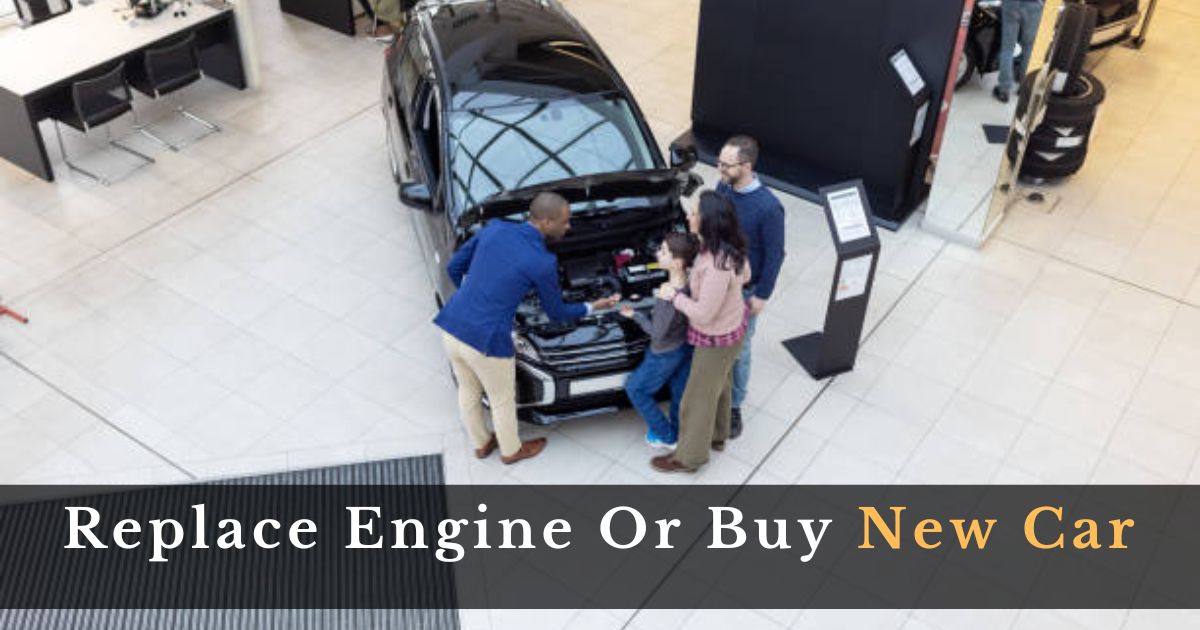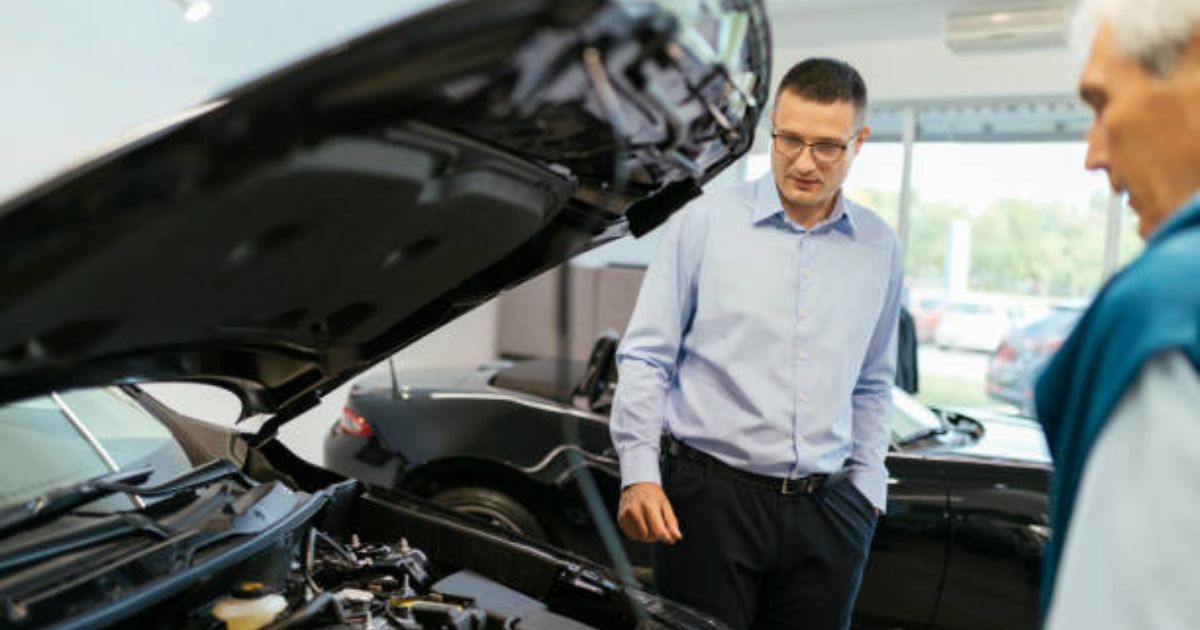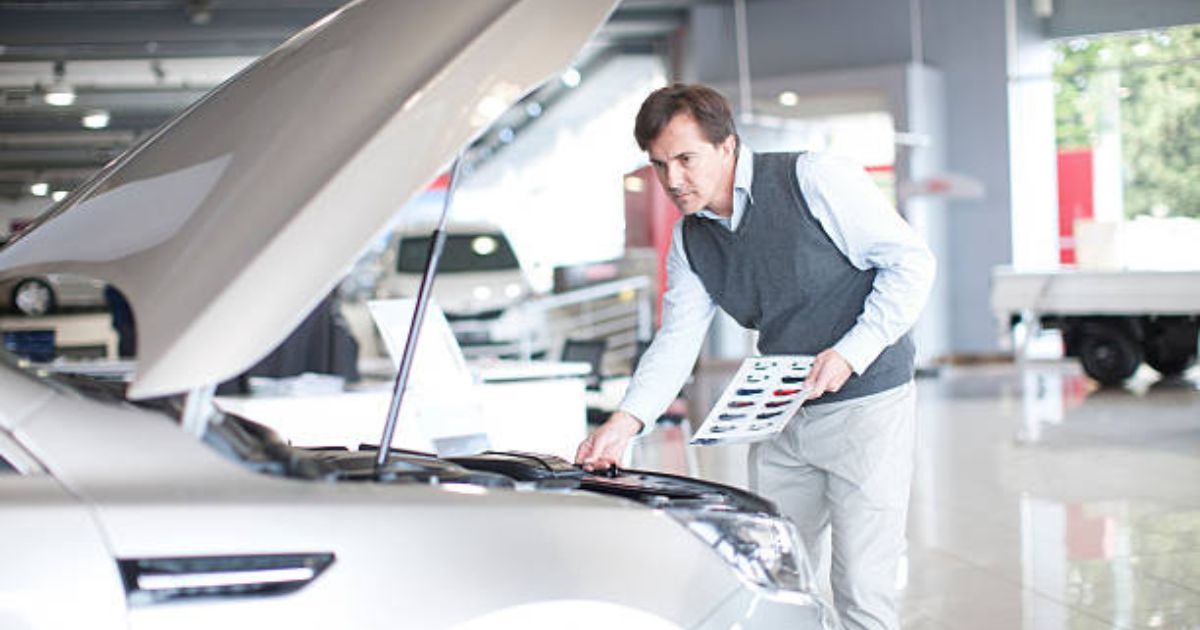Replace engine or buy new car, Deciding between replacing your car’s engine and buying a new car can be tough. Both options have their pros and cons, and the good choice depends on several factors. This article will help you weigh your options and make an informed decision.
Replace Engine or Buy New Car: Making the Right Choice
Introduction
At some point, every car owner faces the tough decision of whether to replace their engine or buy a new car. It’s a big choice, and making the right decision can save you a lot of money and headaches in the long run. So, let’s break it down step by step and see which option makes the most sense for you.
Understanding Engine Replacement
What Does Replacing an Engine Involve?
Replacing an engine means taking out the old, malfunctioning engine and putting in a new or rebuilt one. This can be a complex process, involving a lot of labor and expertise. It’s not just about swapping one part for another; it’s about ensuring everything works smoothly with your car’s existing systems.
Common Reasons for Engine Replacement
Engines might need replacing for several reasons. Maybe your car has high mileage, and the engine is simply worn out. Or perhaps there’s been a catastrophic failure like a cracked engine block or severe overheating. Whatever the reason, knowing when an engine replacement is necessary is the first step in making your decision.
Costs of Replacing an Engine
Parts and Labor
The cost of an engine replacement can vary widely. You’ll need to pay for the engine itself, which can range from a few thousand dollars for a used engine to tens of thousands for a new one. Labor costs are also significant, as the process can take several hours of work by a skilled mechanic.
Potential Hidden Costs
Beyond the basic parts and labor, there might be additional expenses. These could include replacing other components that are damaged or worn, addressing issues that caused the engine failure in the first place, or dealing with any unexpected problems that arise during the replacement process.
Replace Engine vs. Buy New Car
| Factor | Replace Engine | Buy New Car |
| Estimated Cost | – Engine replacement cost (labor + parts) |
– New car purchase price
|
| Car’s Age & Mileage | – Older cars with high mileage are generally less likely to justify an engine replacement. |
– Newer cars with lower mileage might be worth keeping with a new engine.
|
| Car’s Condition | – Consider the overall health of the car. Are there other repairs needed? |
– New cars offer the latest safety features and technology.
|
| Resale Value | – Engine replacement might not significantly increase resale value, especially for older cars. |
– Newer cars generally hold their resale value better.
|
| Your Budget | – Can you afford the upfront cost of a new car? |
– Can you manage the cost of the engine replacement and potential future repairs on your current car?
|
| Your Needs & Preferences | – Do you need the latest features or increased fuel efficiency of a new car? |
– Are you happy with your current car aside from the engine issue?
|
Pros of Replacing Your Engine
Cost-Effectiveness
In many cases, replacing an engine is cheaper than buying a new car. If your current vehicle is in good condition otherwise, it might make more sense financially to invest in a new engine rather than taking on the cost of a whole new vehicle.
Retaining Your Current Vehicle
If you love your car and it’s been reliable for you, keeping it can be a big plus. Replacing the engine means you can keep driving a car you’re comfortable with and avoid the hassle of shopping for and adjusting to a new vehicle.
Cons of Replacing Your Engine
High Initial Cost
While replacing an engine can be cost-effective in the long run, the initial outlay can be substantial. It’s a significant investment, and not everyone has the cash on hand to cover it.
Risk of Future Repairs
Even with a new engine, other parts of your car might be old and prone to failure. This means you could end up facing more repairs down the line, potentially making the engine replacement less worthwhile in the long run.
Understanding Buying a New Car
When to Consider a New Car
Sometimes, replacing the engine just doesn’t make sense. If your car is old, has multiple issues, or if the cost of replacement approaches the value of the car, buying new might be the better option.
Advantages of New Car Technology
New cars come with the latest technology and safety features. From better fuel efficiency to advanced driver assistance systems, buying new means you get the benefits of modern automotive advancements.
Costs of Buying a New Car
Purchase Price
Buying a new car is a major investment. The purchase price can be significantly higher than the cost of an engine replacement. However, this also comes with the benefits of owning a new vehicle.
Depreciation and Long-Term Costs
New cars depreciate quickly, losing a significant portion of their value within the first few years. You’ll also need to consider long-term costs like insurance, maintenance, and possibly higher registration fees.
Pros of Buying a New Car
Latest Features and Technology
A new car means new features. From the latest infotainment systems to improved fuel economy and emissions, there are many benefits to having the newest model.
Warranty and Reliability
New cars come with warranties that can cover repairs for several years. This can give you peace of mind and potentially save you money on unexpected repairs.
Cons of Buying a New Car
Higher Upfront Cost
The biggest downside to buying a new car is the initial cost. It’s a significant investment that not everyone can afford, especially compared to the cost of an engine replacement.
Depreciation
As mentioned earlier, new cars lose value quickly. This depreciation means that you could lose money in the long run compared to keeping and maintaining an older vehicle.
Factors to Consider
Current Vehicle Condition
Assess the overall condition of your car. If it’s in good shape and you’ve kept up with regular maintenance, an engine replacement might be a better option. If the car has multiple issues, buying new might be the smarter choice.
Financial Situation
Consider your financial situation. Do you have the funds available for a new car or an engine replacement? Would financing either option put a strain on your budget?
Long-Term Plans
Think about your long-term plans. How long do you intend to keep your car? Are you planning any major life changes that might affect your vehicle needs?
Environmental Considerations
Impact of Engine Replacement vs. New Car
Replacing an engine can be more environmentally friendly than buying a new car. Manufacturing new vehicles has a significant environmental impact, whereas keeping your current car on the road might reduce your carbon footprint.
Sustainability and Emissions
Consider the emissions and sustainability of both options. A new engine can improve your car’s efficiency and reduce emissions, but a new car might offer even better performance in these areas.
Decision-Making Process
Assessing Your Needs
Take a good, hard look at your needs. What do you value more: cost savings, reliability, or the latest technology? Your priorities will guide your decision.
Consulting a Mechanic or Expert
Before making a final decision, consult with a trusted mechanic or automotive expert. They can provide valuable insights into the condition of your car and the good course of action.
Real-Life Scenarios
Case Studies and Examples
Hearing about real-life examples can help. For instance, if someone replaced their engine and ended up with a reliable car for several more years, that could influence your decision. Conversely, if someone bought a new car and enjoyed the latest features and reliability, that’s also worth considering.
In the end, the decision to replace your engine or buy a new car depends on a variety of factors. By considering the costs, pros and cons, and your personal situation, you can make an informed choice that good suits your needs. Whether you choose to breathe new life into your current vehicle or embrace the latest in automotive technology, the most important thing is to make a decision that you feel confident in.
FAQs
How Long Does an Engine Replacement Take?
An engine replacement can take anywhere from a few days to a couple of weeks, depending on the availability of parts and the complexity of the job.
Is It Better to Replace an Engine or Rebuild It?
Replacing an engine with a new or rebuilt one can be more cost-effective and reliable than rebuilding your existing engine, especially if it has significant damage.
What Are the Signs That I Need a New Engine?
Common signs include frequent overheating, excessive oil consumption, knocking noises, and poor performance. A mechanic can diagnose the specific issue.
How Does Engine Replacement Affect My Car’s Value?
Replacing an engine can increase your car’s value, especially if the new engine has low mileage and comes with a warranty. However, the overall value will also depend on the car’s condition and age.








